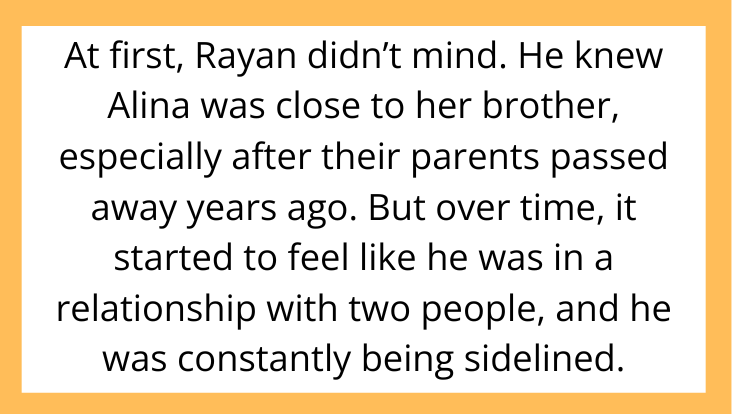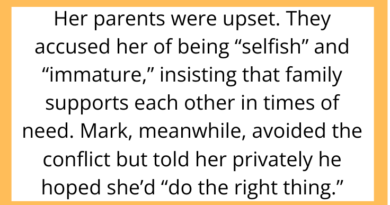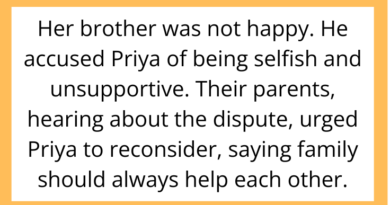AITAH for Asking My Wife to Stop Calling Her Brother Every Day?
Marriage is often about finding balance—between independence and connection, between your partner and their family. But what happens when one person feels like a third wheel in their own relationship?
This AITAH scenario dives deep into a marriage where frequent calls to a family member start to feel less like bonding—and more like a boundary being crossed.
The Setup: A Brotherly Bond or a Marital Wall?

A 34-year-old man—let’s call him Rayan—shared his frustration on Reddit’s AITAH community. Rayan has been married to his wife, Alina, for three years. Their relationship has generally been strong, built on mutual respect, similar values, and shared goals.
But one habit has been gnawing at him: Alina talks to her older brother every single day. Not short check-ins. We’re talking 45 minutes to over an hour—every evening, like clockwork.
At first, Rayan didn’t mind. He knew Alina was close to her brother, especially after their parents passed away years ago. But over time, it started to feel like he was in a relationship with two people, and he was constantly being sidelined.
When Communication Crosses a Line







